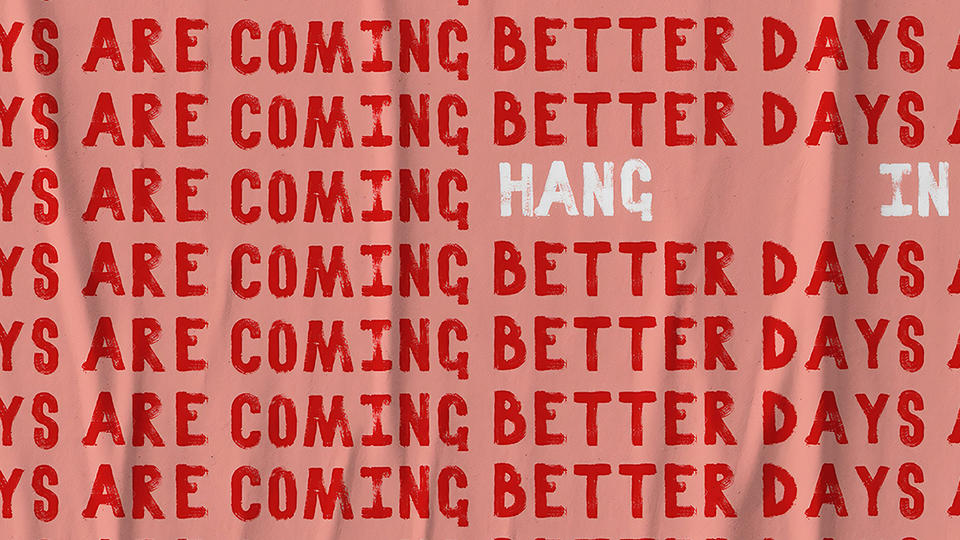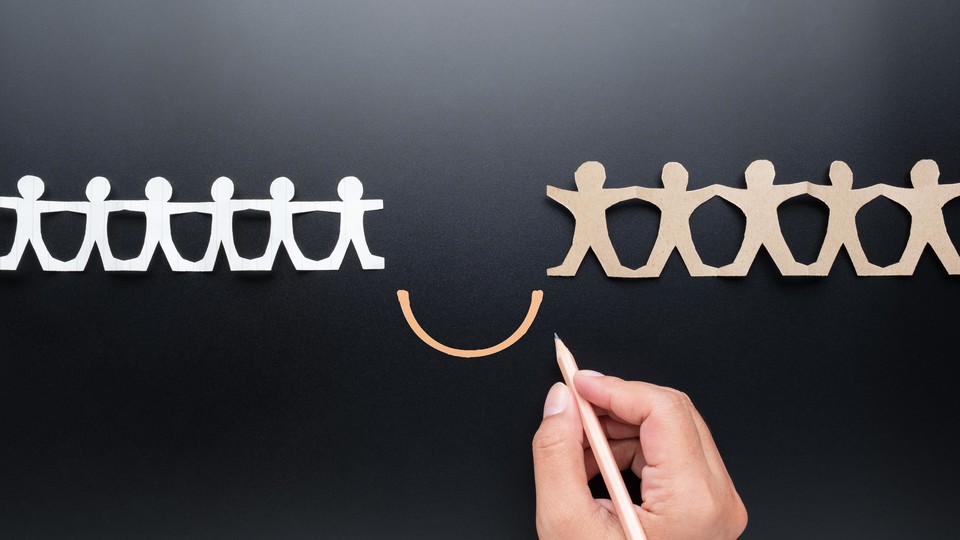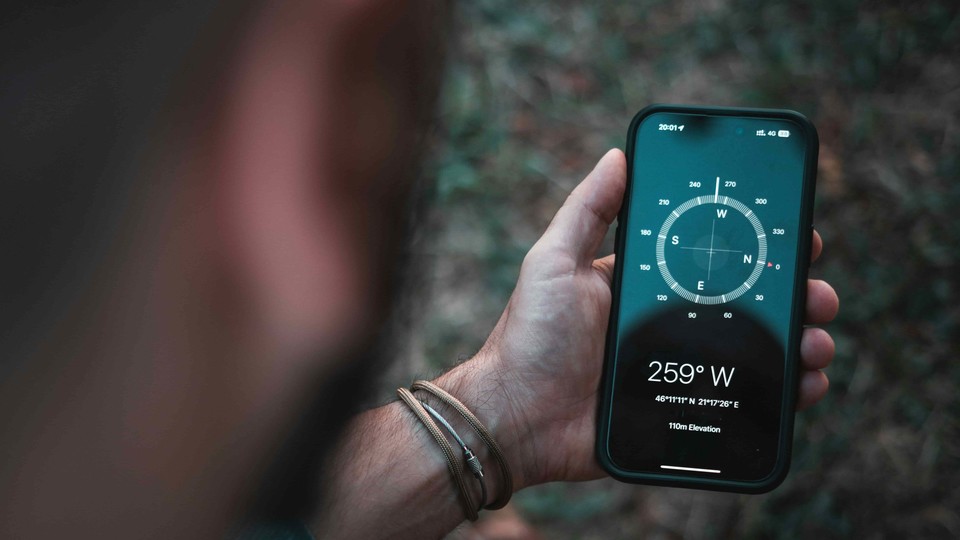What’s Holding Companies Back From Expanding Diversity
“If there is not a pipeline of diverse applicants getting their professional degrees, there are simply fewer diverse people to choose from,” says Mikki Hebl, a professor of management and psychology at Rice University in Houston.
Use Your Words
Time for academics to talk straight.


Based on research by Erik Dane
Time For Academics To Talk Straight
- Traditional academic writing is dense and inaccessible.
- Writing for nonacademic audiences can help scholars bring life to their professional writing.
- Writing in plain English matters: Accessible language broadens the reach of research and generates social change.
Academic research is a powerful force.
It deepens understanding of daily life. It undergirds laws. And, in an era poisoned by “fake news,” it can provide a desperately needed barometer to gauge what’s real and what’s not.
No one would accuse the academy of taking such duties lightly, exactly. Academics hold their work to strict account, typically basing their utterances on empirical evidence, rigorous peer-review and conceptual precision. Little wonder that the media constantly seek interviews with them or opinion pieces buttressed by their research.
Why is it, then, that for many readers, academic writing is useless?
Pick up an academic journal without a PhD and try deciphering it. There may be original thinking and breakthroughs in there, but they’re mostly encoded in language that researchers seem to be using to communicate exclusively with each other. How many lay people use terms such as metacritical, taxonomic, hermeneutics or polysemy?
In an article published in, yes, an academic journal, but mercifully devoid of esoteric terms, former Rice Business Professor Erik Dane argues that traditional academic writing is obscuring the very arguments, theories and insights that researchers need to explain. Academese, he writes, is so larded with jargon that it dulls the impact of the ideas themselves.
Entrenched over generations, this lexicon favors appropriateness over clarity and linguistic formula over originality. Articles resemble each other, authors sound interchangeable and yet their words are comprehensible only to other academics. “The way academics write,” Dane says, “is rooted in institutional pressures that exact conformity in exchange for membership.”
To fulfill their public duty as intellectuals, Dane writes, researchers must venture beyond their own tribe.
Failure to do so means that important ideas – often generated with the help of taxpayer dollars – are trapped in an ivory tower inaccessible to the people who need new ideas the most: decision-makers, leaders, policy-writers and voters.
The first step? Try writing for a non-academic audience, Dane recommends. “Most researchers publish their work in peer-reviewed journals where there’s a rigid formula for style,” he notes. Pitching ideas to trade books, mainstream magazines and newspapers requires brushing up on brisk, everyday language and clearly connecting the dots.
Luckily, certain exercises can make clear writing easier. Creative writing, for example, can “trigger new associations and loosen assumptions about the nature of writing itself,” Dane writes. Switching from an expository to an imaginative mindset helps the writer call established norms into doubt and triggers a creative process.
Reading widely and beyond the scope of academic literature can also remind scholars of the full expressive range of English. “Across distinct forms of writing, from rhetorical rants to poems to graphic novels,” Dane says, “our language unfurls itself in remarkable cadences and combinations.” Imagine harnessing some of those to make a reader understand and care about finance, stem cell research or discrimination research.
By injecting personality, even wit, into their writing, Dane says, academics stand to gain relevance far beyond the academy. And maybe even within it: “My hunch is that articles that have a dash of ‘deviance’ will actually fare better within the peer-review process,” Dane writes. “As academics, we advance sequentially from one point to the next, constructing a chain of logic that props up the hypothesis while acknowledging any gaps left to be explored. But introducing some flair into the way we write will make our writing sound better. Making that transition from monotone to melodious can help us make our work more memorable too.”
The impact of any research, in the end, depends on whether it sticks in a reader’s mind. Writing with life to it can introduce an academic’s hard-won findings to broader audiences that can actually benefit and act on them.
“We often bemoan the fact that business practitioners don’t read what we publish,” Dane argues. “And in many fields there’s a sizeable gap between research and practice. The more engaging our writing … the better off we’ll all be from a societal point of view.”
In an era characterized by “fake news,” hyperconnectivity and unprecedented change, it’s more important than ever for those on the front lines of knowledge to report what they know. What a waste when the truths they struggled to unearth are buried again, in their own words.
Erik Dane is a former professor and was the Distinguished Associate Professor of Management (Organizational Behavior) at Jones Graduate School of Business at Rice University.
To learn more, please see: Dane, E. (2011). Changing the tune of academic writing: Muting cognitive entrenchment. Journal of Management Inquiry, 20(3), 332-336.
Never Miss A Story
Keep Exploring
Rice’s Jones School recognizes outstanding alumni
Rice’s Cohen House was the site of a celebratory occasion Oct. 4 as the Jones Graduate School of Business community gathered for the Rice Business Alumni Awards, which annually recognize alumni in six categories for outstanding achievements in their professional fields and exemplary leadership.
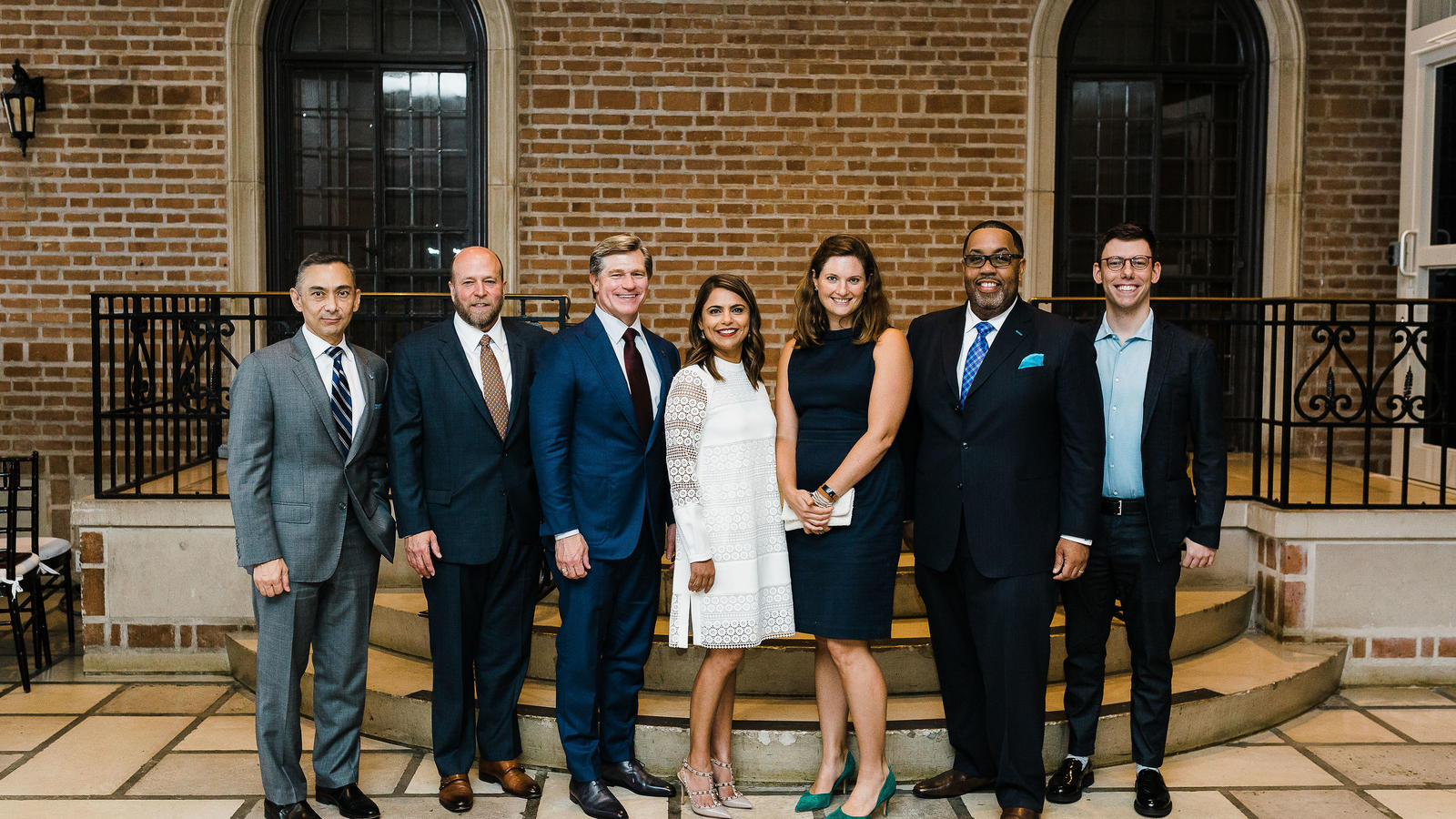
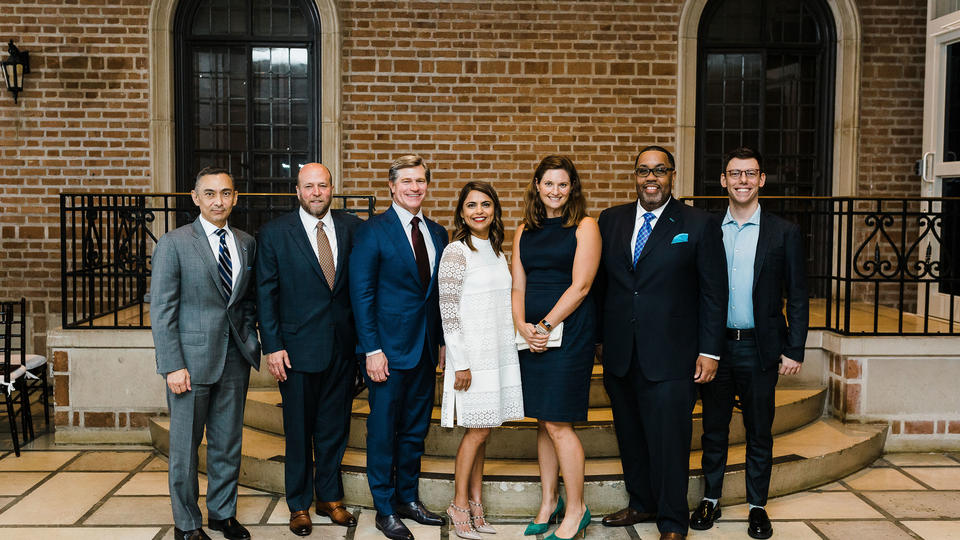
Rice’s Cohen House was the site of a celebratory occasion Oct. 4 as the Jones Graduate School of Business community gathered for the Rice Business Alumni Awards, which annually recognize alumni in six categories for outstanding achievements in their professional fields and exemplary leadership.
Recipients of these awards embody the school’s four pillars of alumni engagement: community, philanthropy, volunteering and lifelong learning. This means that when reviewing nominations, the selection committee took into special consideration those alumni who exemplify and consistently engage in supporting their communities in these areas.
Pictured, from left, are Peter Rodriguez, dean of Rice Business; Eric Elfman ’95, Industry Excellence in Technology Award; Rob Royall ’84, Industry Excellence in Financial Services Award; Tanu Grewal ’05, Industry Excellence in Consumer Products Award; Eleanor Putnam-Farr, assistant professor of marketing at Rice Business; Sean Ferguson ’01, Industry Excellence in Nonprofit Award; and Alessandro Piazza, assistant professor of strategic management at Rice Business.
Award winners not pictured are Robert Gaudette ’01, Industry Excellence in Energy Award, and Robyn O’Brien ’98, Alumni Community Service Award.
The awards were established by the Jones Graduate School Alumni Association.

Meet The Rice Jones MBA Class Of 2021
In a year when MBA applications plunged at just about every U.S. business school, the Jones Graduate School of Business experienced a surge – joining the University of Chicago as the only Top 25 MBA programs that increased applications. Of course, Rice has long been an ascendant program. It is the Southeastern sparkplug with grand ambitions, never satisfied and always evolving. In the process, Jones has increasingly lived up to the larger university’s “Ivy of the South” reputation.
Why Choose A Rice Professional MBA
Recruiting Leader Steve Summers talks about the Professional MBA program at Rice Business, addressing everything from applying knowledge in global field experiences and capstones to time management and changing career paths.
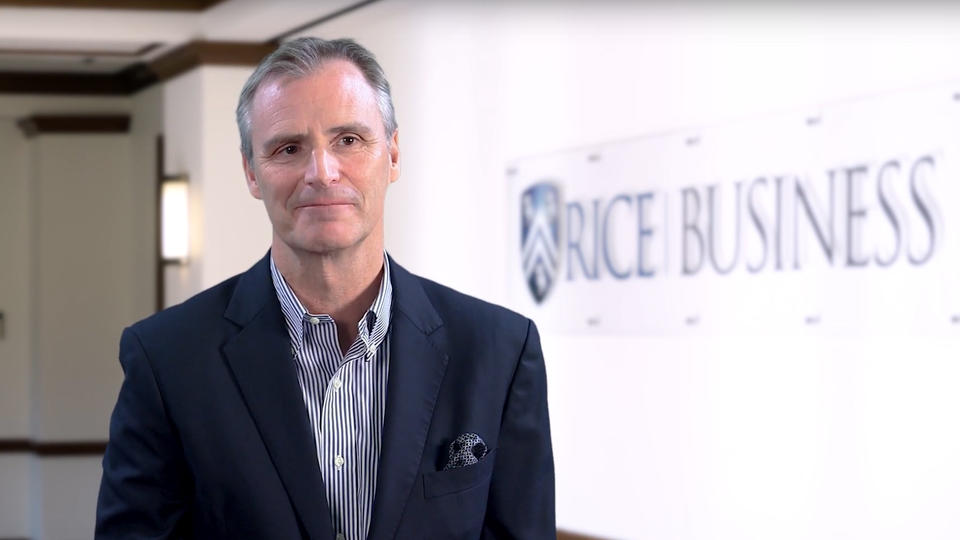
Admissions Vlog 2: October 2019
At Rice Business, we have exceptional part-time MBA programs thoughtfully designed for those who want to advance their careers without leaving their jobs.
If you are a professional seeking to accelerate your career or are interested in learning more about Rice Business and the application process, contact Steve or an admissions recruiter at business.rice.edu/admissions today!
You May Also Like
Op-ed: Here's why oil and gas company mergers usually fail
Over two-thirds of all mergers fail, with the failures blamed on post-merger issues such as execution gaps, lack of cultural alignment and integration problems. Closer scrutiny of failed mergers and acquisitions in the oil and gas industry paints a different story. It appears CEOs and board members often create the conditions for failure by ignoring the most critical stakeholder, the customer, and instead focusing on cost cutting and efficiency as the primary source of shareholder value.
Dallas Fed chief, Rice Business dean to discuss Texas economy, energy
Robert Kaplan, president and CEO of the Federal Reserve Bank of Dallas, and Peter Rodriguez, dean of Rice University’s Jones Graduate School of Business, will conduct an hourlong conversation about the Texas economy, the energy industry and other timely economic issues.
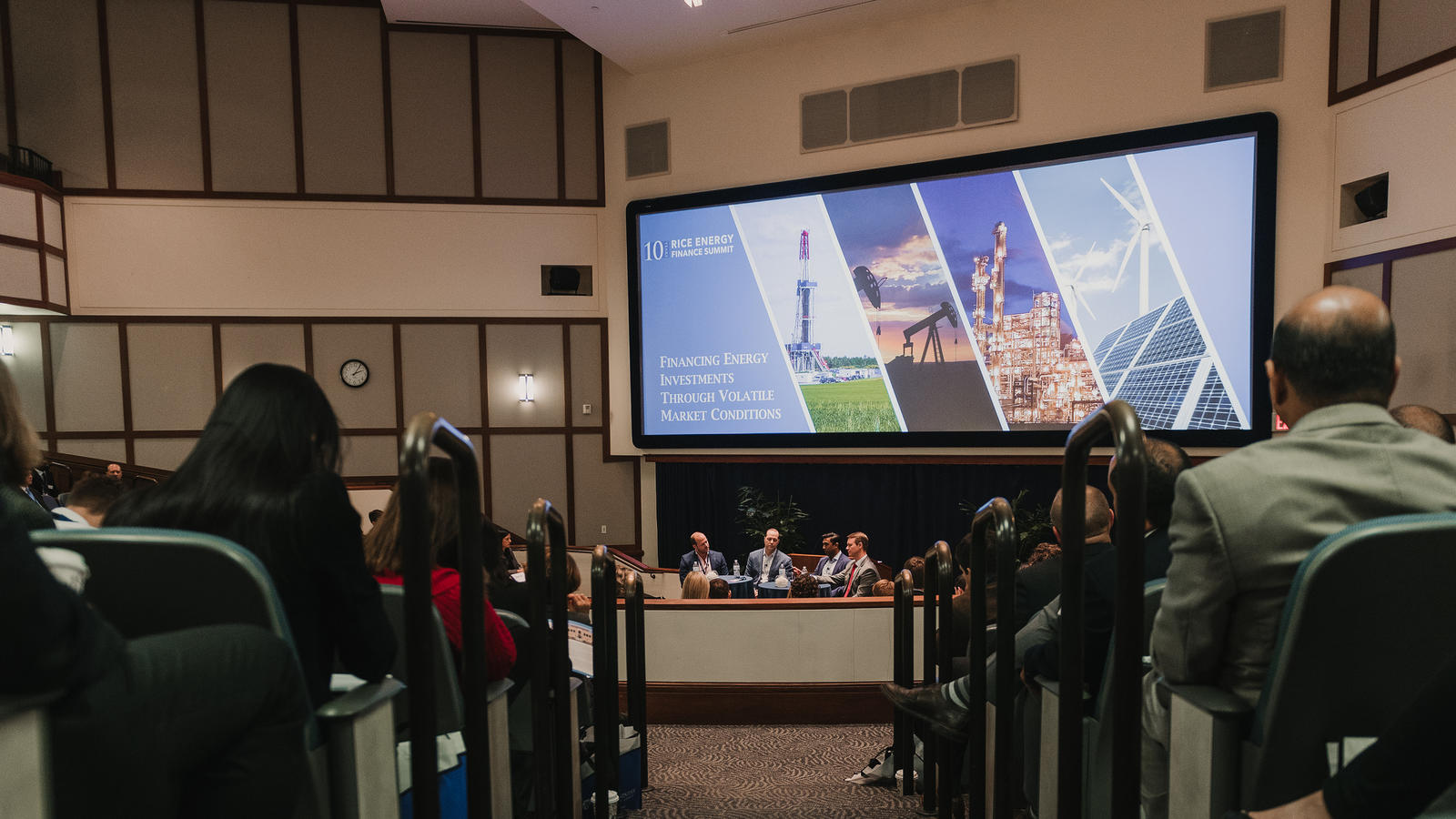
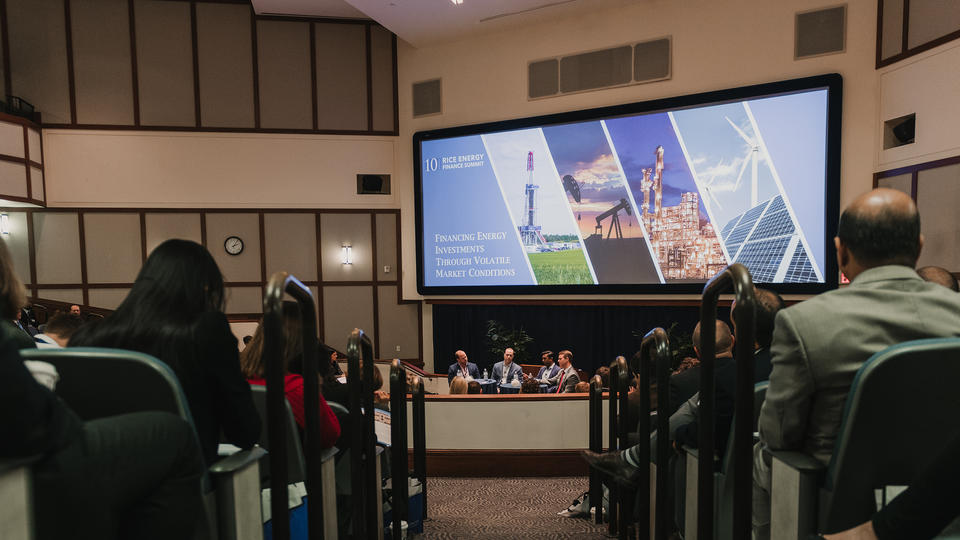
As part of the Rice Energy Finance Summit Nov. 1, Robert Kaplan, president and CEO of the Federal Reserve Bank of Dallas, and Peter Rodriguez, dean of Rice University’s Jones Graduate School of Business, will conduct an hourlong conversation about the Texas economy, the energy industry and other timely economic issues.
The student-led, daylong summit at Rice Business’s McNair Hall is open to the public. Registration is $200. The conversation between Kaplan and Rodriguez will be livestreamed at www.youtube.com/c/ricebusiness/live.
What: Rice Energy Finance Summit on “Shifting Goalposts: Energy at the Nexus of Capital Discipline and Value Creation.”
Who: Robert Kaplan, president and CEO of the Federal Reserve Bank of Dallas, and Peter Rodriguez, dean of Rice University’s Jones Graduate School of Business.
When: 8:30-9:30 a.m. Friday, Nov. 1.
Where: Rice University, McNair Hall’s Shell Auditorium, 6100 Main St. Parking is available in the Central Campus Garage. For directions, see http://business.rice.edu/directions-and-parking.
For the Rice Energy Finance Summit agenda and to register, visit https://business.rice.edu/rice-energy-finance-summit.
The Rice Energy Finance Summit is an annual conference promoting forward-looking discussions on the most relevant energy finance, investment and strategy topics affecting the global energy industry. The conference serves as a platform for senior executives, investors, advisers and policymakers to share their perspective with over 400 fellow energy industry professionals and Rice students, alumni, faculty and staff.
The conference’s strategic theme this year, “Shifting Goalposts: Energy at the Nexus of Capital Discipline and Value Creation,” aims to explore the linkages between the industry’s commitment to capital discipline and the imperative to generate sustainable returns for investors, all against a backdrop of changing business models, capital markets constraints, increasing private ownership and uncertain growth prospects.
Related materials:
Follow Rice Business via Twitter @Rice_Biz.
Follow Rice News and Media Relations via Twitter @RiceUNews.
Could Houston Be The ‘Energy Capital’ Without Oil And Gas?
Major oil companies are seriously looking into low-carbon energy sources, said energy management professor Bill Arnold at Rice University. And it’s no longer just for PR reasons like in the past. “Developing wind power, electric vehicle recharging stations,” Arnold said. “But I think what they try to do is to say where do we actually have known skillsets right now and how can we apply them that’s compatible with this new interest.”
Cause And Effect
How to get your company to buy in for your cause.


Based on research by Scott Sonenshein, David M. Mayer, Madeline Ong and Susan J. Ashford
How To Get Company Buy In For Your Cause
- More and more firms are taking part in social activism alongside their normal economic endeavors.
- It was previously believed that the best way to convince managers to engage in corporative activism was through economic language.
- New data suggests that moral arguments can be just as powerful as a tool of persuasion. Moral language works best when it’s described in the context of a firm’s overall mission.
Consider the parade of brands that have taken up social activism in the past few years. Stella Artois’ “Buy a Lady a Drink” campaign drove awareness of the global water crisis. Apple’s Tim Cook advocates for LGBTQ rights. Airbnb launched its “We Accept” campaign just nine days after President Trump signed an order temporarily closing U.S. borders to refugees.
These companies’ plunge into social issues marks a profound change in the historic relationship of business to U.S. society. In the old days, firms tended to measure value strictly in terms of profit and loss. Even when they launched charitable projects, those projects were sold to management as good for the bottom line. Today, it’s not just money that matters, but also a company’s sense of identity.
So there’s a pressing need for research to guide managers on how to pitch activist projects in this new environment. To investigate, Rice Business professor Scott Sonenshein joined colleagues David M. Mayer and Susan J. Ashford of the University of Michigan and Madeline Ong of Hong Kong University to analyze how business managers should frame projects that don’t conform to traditional notions of profit and loss. Businesses are most willing to take a stand, they found, when managers frame a project in language the businesses understand — language, that is, that speaks to a company’s vision of the world and its own values.
To draw these conclusions, Sonenshein’s team considered years of research showing that when managers only consider the bottom line, they quickly drift from a team-oriented approach to one in which individuals behave less ethically and more selfishly. In some studies, merely looking at money increased selfish behavior. In contrast, managers who view issues through an ethical lens tend to foster cooperative and pro-social behavior among their employees — behavior that happens to be highly desirable for a high-functioning firm.
As part of their investigation, Sonenshein and his colleagues created an online survey of 141 working adults, asking them to recall a time when they spoke to a superior about a major social issue. The issues raised included everything from local charity giving to gender and racial issues in the workplace to disaster relief. There was a significant interaction, the scholars found, between the use of language invoking morals and what they called “fit.” Moral language, they discovered, had much more firepower when used in an argument that fit an organization’s values.
A second survey of 176 people involved both employees and the managers they hoped to convince. To find their participants, Sonenshein’s team tapped the World Business Alliance (a pseudonym for a real company), which works with hundreds of business organizations, including Fortune 500 companies in North America, Asia and Africa. The employees were asked how much they used moral arguments and business language to make a case to managers to participate in a social project. The managers, for their part, were asked how successful the employees were in making those pitches.
The researchers found that moral language tended to be more successful in ginning up company action when it related to a firm’s core mission. When employees made moral arguments for action on issues that didn’t fit their firm’s goals, their efforts faltered. It’s easier, for example, to get managers at a water utility to join a campaign for clean drinking water than to get similar support from managers of a paper mill or an IT company.
In a sharp digression from traditional business culture, talking about social issues at work is no longer taboo. In fact, major companies now crave a voice in the public conversation. To turn your cause into a company talking point, however, it’s critical to use the right references to describe it. Listen closely, Sonenshein advises, to what your company tells itself and others about its values. In 21st century business, it’s no longer necessary to pitch social action as a dollar-printing machine. Even so, when pushing a particular moral stand, it’s still key to echo the values of the institution writing the checks.
Scott Sonenshein is the Henry Gardiner Symonds Professor of Management at Jones Graduate School of Business at Rice University.
For learn more, please see: Mayer, D. M., Ong, M., Sonenshein, S., & Ashford, S. J. (2019). The money or the morals? When moral language is more effective for selling social issues. Journal of Applied Psychology, 104(8), 1058-1076.
Never Miss A Story
You May Also Like
Keep Exploring
Rice U. finance expert: When stocks are up, shareholders vote for the incumbent
The stock market has a measurable influence on how people who own shares vote — potentially a big one — according to a new study by finance experts at Rice University and the University of Pittsburgh.


The stock market has a measurable influence on how people who own shares vote — potentially a big one — according to a new study by finance experts at Rice University and the University of Pittsburgh.
The study, which compared electoral preferences with levels of dividend income, suggests that had stocks rallied instead of plunging in 2008, then-presidential candidate John McCain may have won key states like Florida and Ohio, said coauthor Alan Crane, associate professor of finance at Rice Business. He is available to discuss the study, a working paper, with the news media.
Crane and his coauthors don’t say equity returns determine elections, but there’s reason to think stock performance affects decisions at the margin, and in certain circumstances could turn the tide.
“The story is, if you’ve got a lot of money invested in the stock market, and the stock market has been going up, then you’re going to support that incumbent party, because that’s good for you personally,” Crane said. “You have an opportunity for politicians to cater through this particular channel.”
From an academic standpoint, there is a generally accepted principle: A good economy is good for the incumbent. “The problem is, it’s very hard to show,” said Crane, who wrote the paper with Pittsburgh professors Andrew Koch and Leming Lin. “What we’re trying to do in this paper is nail that down. Say, ‘Look, the stock market does have this causal effect going in that direction, and we can identify that.'”
Rice has a VideoLink ReadyCam TV interview studio. ReadyCam is capable of transmitting broadcast-quality standard-definition and high-definition video directly to all news media organizations around the world 24/7.
To schedule an interview with Crane, contact Jeff Falk, associate director of national media relations at Rice, at jfalk@rice.edu or 713-348-6775.
Follow the Jones Graduate School of Business on Twitter @Rice_Biz.
Follow Rice News and Media Relations on Twitter @RiceUNews.
Related materials:
Study: https://papers.ssrn.com/sol3/papers.cfm?abstract_id=3460209
Crane bio: https://business.rice.edu/person/alan-crane
Jones Graduate School of Business: https://business.rice.edu

